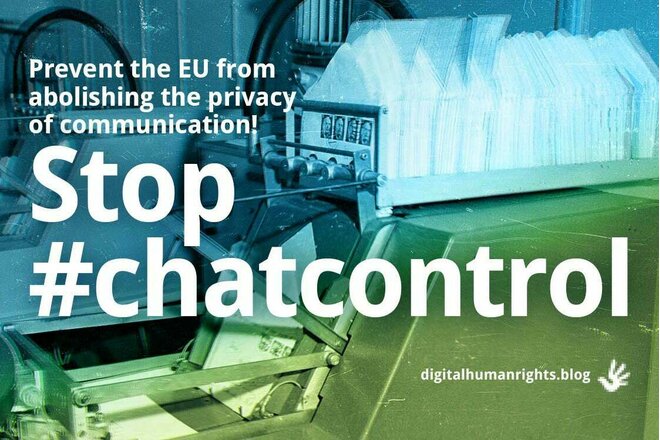04/15/2022, 22:49
Dear friends of the digital basic rights,
even after the leak of an internal inspection report for the EU commission it remains unclear what exactly the commission is planning regarding #chatcontrol. The repeatedly postponed publication of the bill (now scheduled for May 11) shows that it’s still being worked on. It will depend on this bill if and to what extent the arguments in our "open letter" (dating from Summer 2021) should be modified for this next round.
We are still expecting that the encryption of private chat messages is supposed to be undermined by making it mandatory for app-providers to automatically scan messages on suspicious contents before they are sent. It is open if only messengers or also other services (image hosters, cloud services, video chats) will be legally required to perform these kind of checks. It is also unknown, what an evaluation of the ePrivacy Derogation will reveal or if it will even be taken into account.
In an interview, that the EU commissioner for home affairs, Ylva Johansson, gave to German magazine “Spiegel” last December, she said: “We must not accept that we cannot protect both: privacy and children.” It is doubtful if she can stick with this principle, since EVERY reasonless mass surveillance is prohibited in the EU. Yet, usually it comes down to that the damage to digital fundamental rights is denied or downplayed, while an appropriate use for the fight against child abuse is not being questioned.
Recently, 40 organisations from the digital civil society have clarified in a position paper, which ten principles they consider indispensable for the protection of fundamental rights. This certainly set a standard. But no matter how justified they are — legal actions against laws violating basic rights are lengthy and the result is always unknown. And once the infrastructure for surveillance is established, it will soon become a model world wide.
This is why it will be crucial to increase the pressure and public interest regarding this sensitive issue. Especially in excited times, in which totalitarian regimes like the Russian are confronting us, rubber stamping an (expected) massive attack against our fundamental rights cannot be accepted under any circumstances.



